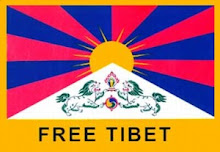 «This fascinating album is part of the excellent Hemisphere series of world music. Latvia – together with Estonia and Lithuania – is one of the Baltic states that regained independence from the Soviet Union in 1991 following an earlier period of independence between the first and second World Wars. The album speaks of the new confidence of a re-emergent country rediscovering the richness and diversity of the folk roots at the heart of its culture. Indeed a collection of over 200,000 dainas (folk songs), gathered by Krisjanis Barons (1835-1923), is one of the largest of its kind in the world.
«This fascinating album is part of the excellent Hemisphere series of world music. Latvia – together with Estonia and Lithuania – is one of the Baltic states that regained independence from the Soviet Union in 1991 following an earlier period of independence between the first and second World Wars. The album speaks of the new confidence of a re-emergent country rediscovering the richness and diversity of the folk roots at the heart of its culture. Indeed a collection of over 200,000 dainas (folk songs), gathered by Krisjanis Barons (1835-1923), is one of the largest of its kind in the world. Latvian folk song centres on the rituals of everyday farming life and the changing seasons but always lurking in the background is the sense of spiritual life, particularly from the pre-Christian pagan era. The music tends to be tinged with mysticism and a sense of melancholy, yet at other times there is a startlingly holistic connection with the natural world.
Four contemporary groups are represented on the album: Auri, Ilgi, Grodi and Rasa. An impressive range of instruments include trough fiddle, bagpipes, wooden trumpet, flute, whistle, drum, violin, hurdy gurdy and accordion. However, the jewel of Latvian music is the kokles, a type of board zither with between 5 and 12 strings. This instrument gives the music a haunting, ethereal quality and a moving delicacy. Evidently the history of the instrument can be traced back 3,000 years so listening to it today gives an incredible musical connection to past millenia.

There are many references in Latvian folk songs to the midsummer and midwinter solstice festivals and a range of stories, beliefs and superstitions surrounding them. One of the most exceptional songs on the album is "Es Jums Ludzu, Salmenieki/Friends, I Beg of You" by Grodi. Throughout the song the use of a gouri-type percussion instrument evokes, for me at least, the rasping call of the corncrake that is still widespread in Latvia. (In Britain, the remaining stronghold of this wonderful bird is the Outer Hebrides.) The call of the bird captures the spirit of midsummer.
Another song, "Mildas Dziesma/Milda's Song" by Ilgi, seems to come from deep in a pagan past. It is a dark song with a sinister drumbeat and includes the line "Let this evil day flow past me." Other songs on the album express a simpler celebration of farming life and a strong affection for animals. […] I recognise some of the tunes on this album but have been more used to hearing them sung on recordings in a rather sanitised, classical style by the typically huge massed choirs of Latvian song festivals. It is a revelation to hear them returned to their simpler roots but with a contemporary touch that combines the vocal and instrumental (often kept apart traditionally) in new ways. The music has a passion and rawness that, at times, can be uncomfortable. It is not music that will necessarily appeal to everyone but will interest many interested in the authentic folk traditions of Europe. The songs here have the power to transpose you to another world.» (Andy Jurgis, Rambles)
Link in comments















